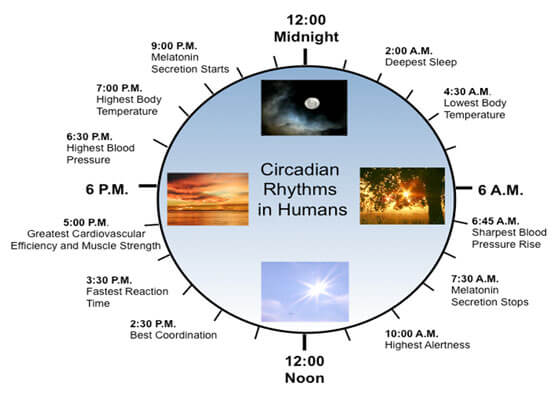
Here’s why it’s important.
Of the hundreds of thousands of living beings, one would think trees will have nothing in common with humans. But, surprisingly, we do have a few things in common like the biological clock or the circadian clock.
Common among vertebrates, plants, fungi and even bacteria, circadian clock is the body’s internal clock regulated by light. Averaging about 24.2 hours, it regulates our sleep patterns. Ever wonder why you feel sleepy post lunch? Conventional wisdom says it is because a full tummy makes one drowsy. But a hearty breakfast doesn’t have the same effect. Our body clock is what makes us sleepy between 2 o’clock and 3 o’clock.
In addition to sleep patterns, this clock also regulates feeding patterns, alertness, core body temperature, brain wave activity, hormone production, regulation of glucose and insulin levels, urine production, cell regeneration, and many other biological activities.
The circadian clock checks its accuracy each day using external Zeitgebers, principally the light-dark cycle. Any variations in the natural light-dark cycle can disrupt our internal clocks. Although artificial light at night is the most common disruption that affects our clocks, there are several other factors which might have the same or similar effects, even if we don’t feel them in the short term.
An obvious example that comes to mind is jet lag. The disruption in the light-dark cycle is what makes travellers have difficulty thinking and performing well immediately after a long flight. But these symptoms can also occur in everyday life, when the circadian rhythm is disrupted by keeping long and irregular hours. That is why it is important to keep a regular sleep schedule and get plenty of quality sleep, so that our bodies can maintain the circadian rhythm,and allow us to stay sharp and alert when we need to.
